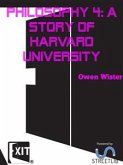The first number of a new quarterly periodical, the "International Journal of Ethics," published at Philadelphia in October, 1890, contained an ostensible review by Dr. Royce of my last book, "The Way out of Agnosticism." I advisedly use the word "ostensible," because the main purport and intention of the article were not at all to criticise a philosophy, but to sully the reputation of the philosopher, deprive him of public confidence, ridicule and misrepresent his labors, hold him up by name to public obloquy and contempt, destroy or lessen the circulation of his books, and, in general, to blacken and break down his literary reputation by any and every means, even to the extent of aspersing his personal reputation, although there had never been the slightest personal collision. Its bitter and invidious spirit was not in the least disguised by a few exaggerated compliments adroitly inserted here and there: these merely furnish the foil needed to give greater potency and efficiency to the personal insinuations, and, like Mark Antony's compliments to Caesar's assassins, subserved quite too many politic purposes to be accepted as sincere. Only a native of Boeotia could be imposed upon by them, when the actual character of the book in question was carefully misrepresented, and when the self-evident trend, tenor, and aim of the ostensible review were to excite public prejudice against the author on grounds wholly irrespective of the truth or untruth of his expressed opinions.
Bitte wählen Sie Ihr Anliegen aus.
Rechnungen
Retourenschein anfordern
Bestellstatus
Storno









